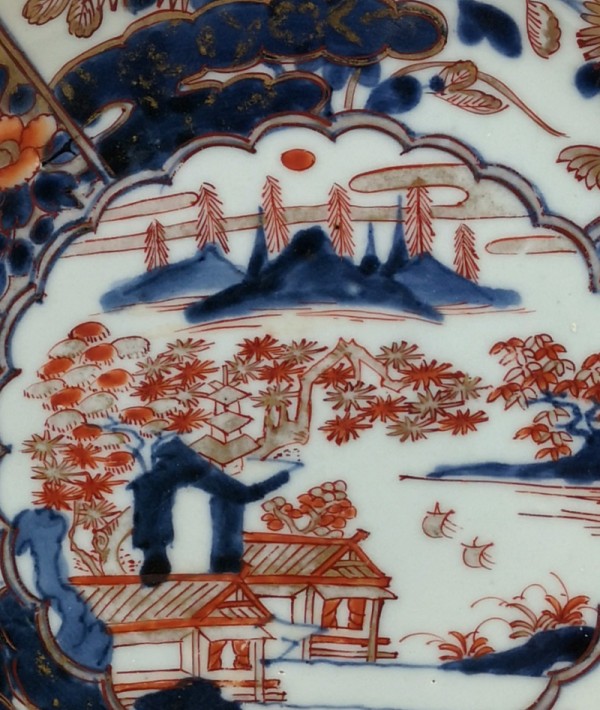
Three mountains or islands in the far distance, likely the Penglai Island, the Daoist Paradise, located in the Bohai Sea, off the eastern coast of China. Japanese "Imari" dish from the Genroku era (1688-1703) within the Edo period (江戸時代, Edo jidai, 1603 to 1868)
© JE Nilsson Coll. 2024
Three mountains or islands, often depicted in the far distance of a landscape, are a common motif on Chinese porcelain from the late Ming and early Qing dynasties. It is thought that these characteristic mountain tops represent the Penglai Islands, which, in Taoist tradition, are the dwelling place of the immortals - a popular motif on Swatow (Zhangzhou) dishes.
The Penglai Islands are an important concept in Taoist mythology and Chinese folklore. They are described as a mystical, heavenly realm where the Eight Immortals (a group of legendary beings in Taoist tradition) reside. These islands are believed to be located in the Bohai Sea, off the eastern coast of China, and are often depicted as lush, otherworldly places that are unattainable by ordinary humans.
Key Features of the Penglai Islands:The legend of Penglai appears in various Taoist texts and is associated with the Qin dynasty (221–206 BCE). Emperor Qin Shi Huang, who sought the elixir of life, is said to have sent expeditions to find these mystical islands but never succeeded. The Penglai Islands are also part of the Eight Immortals Crossing the Sea legend, where each immortal uses their own powers to reach this sacred place.
The Penglai myth embodies themes of transcendence, the quest for immortality, and the pursuit of spiritual enlightenment central to Taoist beliefs.
A